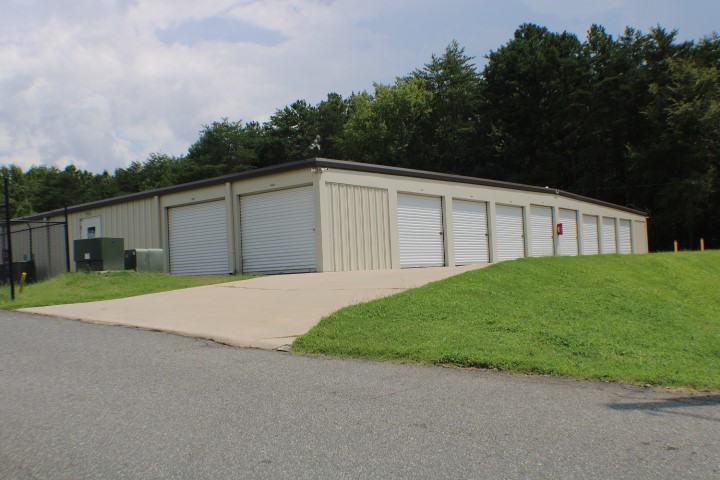Storage units are ideal for storing personal items securely
Storage units in Harrisburg NC can help store personal items safely and securely until you can use them again. In recent times, the concept of storage units has evolved beyond the traditional use of housing furniture and personal belongings. As individuals seek creative solutions for managing space, questions arise regarding what can and cannot be stored in these units. One intriguing inquiry involves the storage of plants – a practice that has gained popularity but raises concerns about its legality.
The Appeal of Storing Plants
People turn to storage units for various reasons – a lack of space at home, temporary relocations, or the need to protect delicate items from harsh weather conditions. When it comes to plants, the motives often revolve around safeguarding greenery during moves, renovations, or seasonal changes. While the idea may seem practical, the legality of storing plants in storage units is a nuanced subject.
Facility Policies and Local Regulations
The permissibility of storing plants largely depends on the policies of the storage facility and local regulations governing such practices. Most storage facilities have specific guidelines outlined in their rental agreements, which tenants are expected to adhere to. These guidelines often include restrictions on storing hazardous materials, perishable items, and living organisms, which can encompass plants.
Local regulations also play a crucial role. Some municipalities have zoning laws and environmental regulations that explicitly prohibit the storage of plants in non-residential areas. Before deciding to store plants in a storage unit, individuals must familiarize themselves with both the facility’s policies and local laws to avoid legal complications.
Potential Legal Issues
While storing plants might seem harmless, it can lead to legal issues if not done in accordance with established guidelines. Violating storage facility policies may result in penalties, eviction, or the confiscation of stored items. Moreover, breaching local regulations can lead to fines and legal consequences.
Plants, being living organisms, have specific care requirements. Storage units may lack the necessary conditions for their well-being, potentially leading to deterioration or death. This can raise ethical concerns and may be considered a form of negligence. In extreme cases, individuals might face legal consequences if their actions are deemed harmful to the environment or public health.
Environmental Impact
Beyond legal ramifications, storing plants in storage units can have environmental implications. In the event of neglect or abandonment, plants may die, leading to the release of harmful substances or the spread of pests. This can negatively impact the local ecosystem and result in ecological disturbances.
In recognition of these potential issues, some jurisdictions have implemented strict regulations on the storage of living organisms. It is crucial for individuals to consider the environmental impact of their actions and explore alternative solutions, such as donating plants or seeking temporary care from friends or local plant enthusiasts.
Facility-Specific Restrictions
Storage facilities typically outline their rules and restrictions in the rental agreement or terms of service. Many facilities explicitly prohibit the storage of living things, including plants. The reasons for this prohibition often revolve around the potential for pests, mold, and other issues that can arise from the presence of organic matter.
Before renting a storage unit, individuals should carefully review the terms and conditions provided by the facility. If there is any ambiguity or uncertainty about the permissibility of storing plants, it is advisable to seek clarification from the facility management. Some facilities might make exceptions or provide guidelines for storing plants under specific conditions.
Case Studies
Several legal cases have arisen from disputes between tenants and storage facilities regarding the storage of unconventional items, including plants. In some instances, individuals argued that their plants were not explicitly covered in the list of prohibited items. These cases underscore the importance of clear communication and understanding between tenants and storage providers.
It is essential to learn from these cases and recognize the potential legal pitfalls. Legal precedents can offer insights into how courts interpret agreements and whether certain justifications for storing plants are deemed valid.
Seeking Permission
In some cases, storage facilities may allow the storage of plants under certain conditions. Seeking permission from the facility management and obtaining written consent can provide legal protection if questions arise in the future. This proactive approach demonstrates a commitment to compliance with facility policies and may be beneficial in the event of a dispute.
Local Laws and Zoning Regulations
Beyond the rules set by individual storage facilities, individuals must also consider local laws and zoning regulations. Zoning laws are designed to regulate land use and can impact what activities are allowed in specific areas. Some areas may have restrictions on storing plants in non-residential zones to prevent potential environmental issues.
Before deciding to store plants in a storage unit, individuals should research and understand the zoning regulations in their locality. This information is typically available through municipal offices or zoning departments.
Environmental Considerations
While exploring storage facility policies, individuals should also consider the environmental impact of storing plants. Some storage facilities may be more environmentally conscious and have specific guidelines in place to prevent ecological harm. Understanding and aligning with these guidelines can contribute to responsible and sustainable storage practices.
This article delves into the multifaceted realm of storing plants in storage units, it becomes evident that legality is contingent on a myriad of factors. From facility policies to local regulations and environmental considerations, individuals must navigate a complex landscape to ensure they remain within the bounds of the law.
Rent the best storage units in Harrisburg NC
Mr. Storage is locally owned and managed with affordable pricing. We have storage facilities in Concord, Salisbury, Harrisburg, Kannapolis NC, and Midland. Contact us today to reserve your unit.

